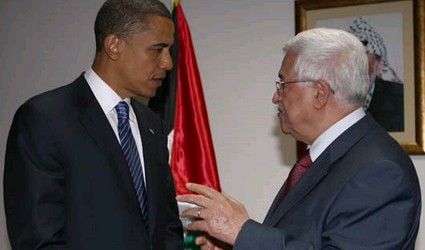by Rabbi Baruch Binyamin Hakohen Melman
Many of us travel many miles until we meet our soulmate. Sometimes our true soulmate was always there but we didn't notice. Sometimes we get it right the first time around. Sometimes the one who we think is our soulmate isn't, and the one who we don't think is our soulmate is. Sometimes we might find our soulmate. And then we might find our deepest truest soulmate. Sometimes it is necessary in life to go through certain experiences before we can appreciate the treasures we are destined to encounter. And sometimes we need to go through certain experiences in order to appreciate that which we already have, to see with opened eyes the soulmate we always had.
Not in vain do we meet certain people, for they are often the keys to meeting yet others. If Avraham had never met his servant Eliezer, he may never have met Rivqa. The soulmate encounter was made by the well. Water often symbolizes Torah. This teaches us that relationships that are based on Torah, that are based on plumbing the deepest depths from the wellsprings of Torah, have that built-in liquid interface to help reduce the heat and friction that naturally builds in any relationship.
We had learned that Rivqa offered to water the camels to the one who in the end led her to her true soulmate. A similar soulmate encounter occured at the well in Parshat Vayeitzei, as Yaaqov seeks out *his* soulmate. This time it was *he* who brought the water to the woman, to Rachel. But unbeknownst to Yaaqov, it was also Rachel who was out looking for a soulmate as well, but not necessarily for herself. More than Yaaqov was looking for a soulmate for *himself,* she was looking for a soulmate for her sister Leah. As was the custom in her land, the younger could not marry before the elder, so she did both herself and her sister a favor by searching on her sister's behalf. And that's what's so special about our mother Rachel. She is teaching us that the deepest blessings come to us when we are helping others achieve*their* deepest desires, bringing blessings to ourselves even as we bring blessings to others.
Rachel hoped for a sign from heaven that she might find her sister's soulmate, or even her own one day by the well. Rachel means lamb, one of the b'hemot hat'horot, the animals fit for an offering. But what is a korban? A vessel for drawing near. Rachel was the vessel to help Yaaqov draw near to help him find his truest soulmate. And what was the purpose of the sign? Perhaps it was to find one whose inclination was like Avraham's, one whose nature was to contravene convention in serving G*d, and thus was able to bring down from heaven the greatest blessings.
So here Yaaqov insisted on rolling off the big rock from off the well while it was still the middle of the day- so unconventional! Yaaqov saw all of Lavan's sheep alongside Rachel, thirsty in the heat of the day. How could he *not* help her, despite the protestations by the other shepherds, slaves were they to convention, living by the exigencies of the clock, instead of living in the moment!Thus he fulfilled her sign from heaven. A soul mate was at hand. Just as Esav "lifted his voice and wept"- (Gen 27:38), so too does Yaaqov when he meets Rachel (Gen 29:11): "Vayisa et qolo vayevk."Identical language! What can we learn from this?
We all have a "low" voice, which we use in our material pursuits. But we also have a "high," or raised voice which we use in our deepest spiritual moments. Not high in volume, but high in vibration.
With Esav it was a plaintive cry of sorrow. But with Yaaqov it was a cry of joy. But just as Yaaqov is identified by his voice- his "qol," by lifting up his voice, Esav was finding his Yaaqovness within, that holy spark within himself, however late, that was worthy of a blessing from his father. And on the deepest level, by his words, he was "lifting up" his brother Yaaqov, euphemistically praying to heaven for Yaaqov to marry. By thus blessing his brother and wishing him joy, he merited blessing from his father, Yitzhaq, who found in his quiver of blessings one more left forEsav.
So just as Rachel looked for a soulmate for her sister, Leah, and ended up finding one for herself as well, so too did Esav pray on behalf of his brother Yaaqov, and benefited himself in the process. This is the deepest meaning of vayisa et kolo vayevk.
Now Rachel was *also* Yaaqov's soulmate. She was the "outer" soulmate, while Leah was the "inner" soulmate. Just as Sarah was characterized by her outer beauty, which was actually merely a reflection and expression of her inner beauty, so too was mother Rachel- yefat toar viyfat mareh (Gen 29:17).
When Yaaqov meets her he kisses her, which is actually a clever play on words with giving water- vayashaq vs. vayishaq (Gen 29:10,11). This really is saying that when you give someone water, i.e., when you teach him Torah,you're touching the innermost soul part of that person. As water nourishes on the physical level, Torah nourishes and gives life on the soul level. Later we see kissing to be intrinsic to reunions of those who were separated and then reunited. Esav and Yaaqov weep when they later meet again. Similarly Yosef and his brothers weep when they reunite as Yosef reveals his true identity in Pharaoh's palace.
"Vayishaq" (and he kissed) also alludes to a kind of death, in the sense of passing from one state to another. A neshiqah, a kiss, is really a drawing out of the soul to encounter its soulmate. A nesheq, or a gun,in modern Hebrew, is really the means by which to draw out the soul of a person from THIS life and enable him to cross over into the next life.
But Yaaqov and Rachel had never before met. How could this phrase in the text of kissing indicate any sort of reunion? Indeed it means that they were really soulmates who had once been together, separated, and now were reunited. Kissing always implies reunion. But how could this be, that they were *both* meant to be Yaaqov's wives? We see it from what comes later, and we see it from what comes earlier- from after and from before.
We see it in that twelve tribes descended from them and from their respective handmaidens. All twelve were beneficiaries of the Abrahamic blessing. As Ishmael had twelve descended entities, so too did Yitzhaq achieve parallel blessing through his son, Yaaqov, both blessed"seed descendants" of Avraham. This is the argument from "later."And we see it in the argument from "sooner," in the earlier Qain and Abel narrative, where the three sons of Adam and Eve (Cain, Abel and Seth) parallel the three patriarchs.
Abraham is asked to kill Yitzhaq, but doesn't, thus achieving a tiqun, or a fixing for Qain's killing of Abel (first born killing the second born). Lamech had two wives (Gen 4:23), Adah and Tzillah. Chazal teach us that one was for beauty; the other, for procreation. Similarly, one of Yaaqov's wives was more loved (Rachel); the other was more for procreation (Leah). Indeed, Lamech says to them , shma'an qoli- listen to my voice. Qol, or voice, is always associated with Ya'aqov (haqol qol Ya'aqov).
There is a strong connection between the earliest Hebrews and the earliest humans, even relating specifically to the love between Yaaqov and his wives. Here is a hint:
Lamech says, (Gen 4:23): "I have killed a MAN by wounding, and a CHILD by bruising."
This is an allusion to Yaaqov's future deceit and clever trickery. First against his brother (the child)- when he cajoles and buys the birthrite from Esau in a famished state when he was out of his mind from hunger, while still a youth. And later on, years later when he tricks his father Yitzchaq (the man) by gaining the actual birthrite blessing via gross deception.
The final touch is when he then says "If Cain shall be revenged seven times, then for Lemech it shall be seventy seven times." That is, if someone were to seek vengeance for my misdeeds, the price shall be seven/seven. Esav sought to kill Ya'aqov. The result is now seven/seven. Seventy seven is also written as seven and seven. Seven years for Rachel and seven years for Leah!
The story of Lemech may be only a literary prefiguration for Yaaqov and the other Avoth. But it may also hint of a reincarnative/metempsychotic connection between the first humans and the first Hebrews!
Now that we understand that both Rachel and Leah were destined soulmates for Ya'aqov, we see in the text four hints of Leah's special connection toYa'aqov. The first hint is in Leah's name, and in the previous parsha's description of Ya'aqov as an "ish tam yoshev ohalim...a "perfect" man (Targum) who dwelled in tents. Why is ohel, or tent, expressed in the plural? The text could have said "yoshev ba'ohel,"i.e., in the singular. This plural expression may hint to his future association with Leah, for ohel in Hebrew, is an acronym of Leah!
One ohel so as referring to his actual proclivity for dwelling in tents, the other ohel suggestive of his soul's proclivity for reuniting with Leah. A second hint of Leah's special soul connection to Yaaqov was in the Torah's description of Leah, referring to her eyes:(Gen29:17) ve'eynei Leah rakot...and Leah's eyes were "lovely," or "soft."
Traditionally, we usually associate eyes with the inner, soul level, while beauty and good looks, are usually associated with the outside level (or at times as a manifestation or expression of an inner beauty). Leah's description focuses exclusively on her eyes, the proverbial windows to the soul.
The third example is based on a comparison with other Biblical women who conceived and had children before their "competetive" wives or concubines. Hagar mocks and ridicules Sarah. Likewise in Judges, Peninah mocks and ridicules Hannah, who remained barren for many years. Not so Leah!
Although she outpaces Rachel many times over before she (Rachel) could have children, nevertheless the text gives no indication of any scorn or mockery on her part towards her sister. This is quite laudatory, and is so valorized by the text. As a result, she partakes in the blessing of fulfilling the Abrahamic line and blessing through *her* children as well. Her experience lies outside the typical pattern, whereby usually the woman who remains barren for many years and subsequently gives birth has exclusive claims to blessings of her lineage. This was not the case with Leah, and so is further evidence of a soul connection with Yaaqov and bearer of the seed of Abraham (zera Avraham).
The fourth hint of Leah's special soul relationship with Yaaqov is in a class all by itself, worthy of its own careful treatment. The four sons of Leah reenact in miniature the struggle of merit versus birth order that is played out in many Biblical fraternal conflict scenarios- Yitzhak and Ishmael, Ya'akov and Esav, to name just two. Here the first two by birth order, Reuven and Shimon, are played against Leah's second pair- Levi and Yehudah. Each of the first two are eventually cursed by their father,whereas the last two are held out for special blessings. Each pair of brothers correlates to the traditional single brothers in their birthrite primogenitural struggles.
With regard to the first pair of Leah's sons, Reuven is cursed for allegedly moving his father's bed; Shimon is cursed for his wanton, gratuitous unrepentant violence committed against Shechem.
And with regard to the second pair of Leah's sons, "Levi" does teshuvah on the tribal level for partaking in the same act as Shimon, by rechanneling his passion at the Golden Calf episode. He goes on to wear the mantle and robes of Israel's priesthood. Yehudah initially fails by his actions in the sale of Yosef, then redeems himself through his actions with regard to Binyamin later in the Joseph narrative. He subsequently wins his father's blessing and would later wear the mantle and crown of Israel's future monarchy. As this struggle is played out with Leah's sons, but not with the sons of Rachel, it suggests a special kind of relationship between Ya'akov and Leah, akin to that of the other patriarchal marital units. Hence they all similarly share burial privileges in Machpelah- the cave of the "couples."
While we all seek our soulmates in life, we should understand that our truest soulmates are staring back at us in the mirror. We need to look forward to that day when we reunite with our true selves, and become the righteous person each of us was meant to become when we took the angelic oath upon leaving the womb (BT Niddah). As long as we keep standing near the well of Torah, we increase our chances of discovering that true-self soulmate.
We may break many hearts when we go through life. And our hearts similarly may become broken many times. Our expectations may be dashed, our hopes may be shattered. But then we realize that all the doors we go through are but ladders to ascend up to the next level of experience, where we may hope to achieve a healing.
Indeed, we also learn that to heal ourselves, we best start with first healing others. And in the process we move beyond our own pain and bring healing and blessing to everyone. May the weeping and crying we experience from sadness, become soon a weeping and crying that we experience from joy. As the psalmist says, "Hazorim bedimah berinah yiktzoru - may they who sow in sorrow, soon come to reap in gladness." May our tears of sadness become tears of joy! Amen.
Shabbat Shalom. Good Shabbos!
© 2000 - 2007 by Rabbi Baruch Binyamin Hakohen Melman
Sefer Chabibi Deepest Torah: VAYEITZEI; KISSING AND A WEEPING TONIGHT












































